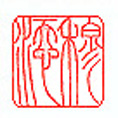— go back
— go back to list of extracts
— skip to next extract

Philodemus made an interjection: ‘So the peasant was a saint, is that what you’re saying?’
I was rather shocked by this question which seemed to be cynical, but before I could say anything to puncture the aristocratic assumptions which still seemed to linger in Philodemus, Samson had drawn up his seat, and gathered his clothing around him, gesturing gently towards Philodemus, without actually pointing a finger:
‘Young man, you are obviously not a peasant. But there is nothing at all wrong with being one. It is no hindrance to honour, insight or good will in someone. For all I know, a high-born person like yourself may encounter other obstacles to these things. No, I do not say that Ctesias was a saint, but just that he was a good person.’
There was a silence. Then I said: ‘Samson, this good person lost his lands and his livelihood, and became a journeyman. Do not tell us that he lacked resentment.’
Samson replied at once. ‘That was what was so surprising. When, very rarely, he spoke of the loss of his lands, the matter was quite clear by his reckoning. It was entirely unjust. But he saw no way of pursuing or rectifying the injustice, and thought that it was better for him, his family, and for all of us, to make the best of his new station, and set aside resentment, rather than pursuing vain schemes of retaliation. We all loved and respected him, and he was very funny, too!’ Samson gulped a little, turning his head aside, and I saw tears on his cheeks. Then turning back, and without wiping away his tears, he looked at me and said: ‘Please, Crito, find out how this happened to him. You are used to this sort of enquiry. Samilia and I will pay your fee for such work.’
(6/7)